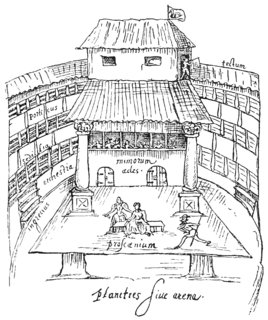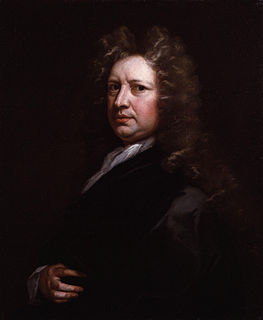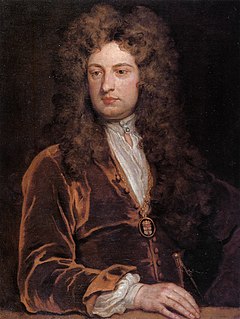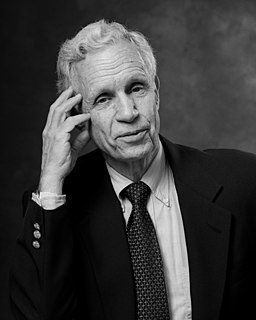
The Oxfordian theory of Shakespeare authorship contends that Edward de Vere, 17th Earl of Oxford, wrote the plays and poems of William Shakespeare. While historians and literary scholars overwhelmingly reject alternative authorship candidates, including Oxford, public interest in the Oxfordian theory continues. Since the 1920s, the Oxfordian theory has been the most popular alternative Shakespeare authorship theory.

William Shakespeare was an English playwright, poet and actor. He is widely regarded as the greatest writer in the English language and the world's greatest dramatist. He is often called England's national poet and the "Bard of Avon". His extant works, including collaborations, consist of some 39 plays, 154 sonnets, three long narrative poems, and a few other verses, some of uncertain authorship. His plays have been translated into every major living language and are performed more often than those of any other playwright. He remains arguably the most influential writer in the English language, and his works continue to be studied and reinterpreted.

English Renaissance theatre, also known as Renaissance English theatre and Elizabethan theatre, refers to the theatre of England between 1558 and 1642.

Sir William Davenant, also spelled D'Avenant, was an English poet and playwright. Along with Thomas Killigrew, Davenant was one of the rare figures in English Renaissance theatre whose career spanned both the Caroline and Restoration eras and who was active both before and after the English Civil War and during the Interregnum.

Thomas Patrick Betterton, the leading male actor and theatre manager during Restoration England, son of an under-cook to King Charles I, was born in London.

In March 1698, Jeremy Collier published his anti-theatre pamphlet, A Short View of the Immorality and Profaneness of the English Stage; in the pamphlet, Collier attacks a number of playwrights: William Wycherley, John Dryden, William Congreve, John Vanbrugh, and Thomas D’Urfey. Collier attacks rather recent, rather popular comedies from the London stage; he accuses the playwrights of profanity, blasphemy, indecency, and undermining public morality through the sympathetic depiction of vice.

The Provoked Wife (1697) is the second original comedy written by John Vanbrugh. It made its first appearance in Lincoln's Inn Fields in May, 1697. The often-repeated claim that Vanbrugh wrote part of his comedy The Provoked Wife in the Bastille is based on allusions in a couple of much later memoirs, but is regarded with some doubt by modern scholars. It is different in tone from his first play, the largely farcical The Relapse, and adapted to the greater acting skills of the new company of actors chosen for its premiere, who walked out not long before in a dispute with management. The actors' cooperative boasted the established star performers of the age, and Vanbrugh tailored The Provoked Wife to their specialties. While The Relapse had been robustly phrased to be suitable for amateurs and minor acting talents, he could count on versatile professionals like Thomas Betterton, Elizabeth Barry, and the rising young star Anne Bracegirdle to do justice to characters of depth and nuance.

David Martin Bevington was an American literary scholar. He was the Phyllis Fay Horton Distinguished Service Professor Emeritus in the Humanities and in English Language & Literature, Comparative Literature, and the college at the University of Chicago, where he taught since 1967, as well as chair of Theatre and Performance Studies. "One of the most learned and devoted of Shakespeareans," so called by Harold Bloom, he specialized in British drama of the Renaissance, and edited and introduced the complete works of William Shakespeare in both the 29-volume, Bantam Classics paperback editions and the single-volume Longman edition. After accomplishing this feat, Bevington was often cited as the only living scholar to have personally edited Shakespeare's complete corpus.

Sir Andrew Jonathan Bate, CBE, FBA, FRSL, is a British academic, biographer, critic, broadcaster, poet, playwright, novelist and scholar. He specialises in Shakespeare, Romanticism and Ecocriticism. He is Foundation Professor of Environmental Humanities in a joint appointment of the College of Liberal Arts, the School of Sustainability and the Global Futures Laboratory at Arizona State University, as well as a Senior Research Fellow at Worcester College in the University of Oxford, where he holds the title of Professor of English Literature. From 2017 to 2019 he was Gresham Professor of Rhetoric in the City of London. Until September 2019 he was Provost of Worcester College, Oxford. He was knighted in 2015 for services to literary scholarship and higher education. The citation described him as "a true Renaissance man."
Frederick Samuel Boas, (1862–1957) was an English scholar of early modern drama.

Shakespeare's plays are a canon of approximately 39 dramatic works written by English poet, playwright, and actor William Shakespeare. The exact number of plays—as well as their classifications as tragedy, history, comedy, or otherwise—is a matter of scholarly debate. Shakespeare's plays are widely regarded as being among the greatest in the English language and are continually performed around the world. The plays have been translated into every major living language.
Sir Edmund Kerchever Chambers,, usually known as E. K. Chambers, was an English literary critic and Shakespearean scholar. His four-volume work on The Elizabethan Stage, published in 1923, remains a standard resource.
Hyde Park is a Caroline era comedy of manners written by James Shirley, and first published in 1637.

Thousands of performances of William Shakespeare's plays have been staged since the end of the 16th century. While Shakespeare was alive, many of his greatest plays were performed by the Lord Chamberlain's Men and King's Men acting companies at the Globe and Blackfriars Theatres. Among the actors of these original performances were Richard Burbage, Richard Cowley, and William Kempe.

The Duke's Company was a theatre company chartered by King Charles II at the start of the Restoration era, 1660. Sir William Davenant was manager of the company under Prince James, Duke of York's patronage. During this period, theatres began to flourish again after being closed due to restrictions throughout the English Civil War and Interregnum. The Duke's Company existed from 1660 until 1682 when it merged with the King's Company to form the United Company.

Theatre of United Kingdom plays an important part in British culture, and the countries that constitute the UK have had a vibrant tradition of theatre since the Renaissance with roots going back to the Roman occupation.

Drama is the specific mode of fiction represented in performance: a play, opera, mime, ballet, etc., performed in a theatre, or on radio or television. Considered as a genre of poetry in general, the dramatic mode has been contrasted with the epic and the lyrical modes ever since Aristotle's Poetics —the earliest work of dramatic theory.

The Tempest is a play by English playwright William Shakespeare, probably written in 1610–1611, and thought to be one of the last plays that Shakespeare wrote alone. After the first scenes, which takes place on a ship at sea during a tempest, the rest of the story is set on a remote island, where the sorcerer Prospero, a complex and contradictory character, lives with his daughter Miranda, and his two servants: Caliban, a savage monster figure, and Ariel, an airy spirit. The play contains music and songs that evoke the spirit of enchantment on the island. It explores many themes, including magic, betrayal, revenge, and family. In Act IV, a wedding masque serves as a play-within-a-play, and contributes spectacle, allegory, and elevated language.

Ernst Anselm Joachim Honigmann, FBA was a German-born British scholar of English Literature, Shakespeare scholar, and Fellow of the British Academy.

Anne Barton was a renowned American-English scholar and Shakespearean critic.















